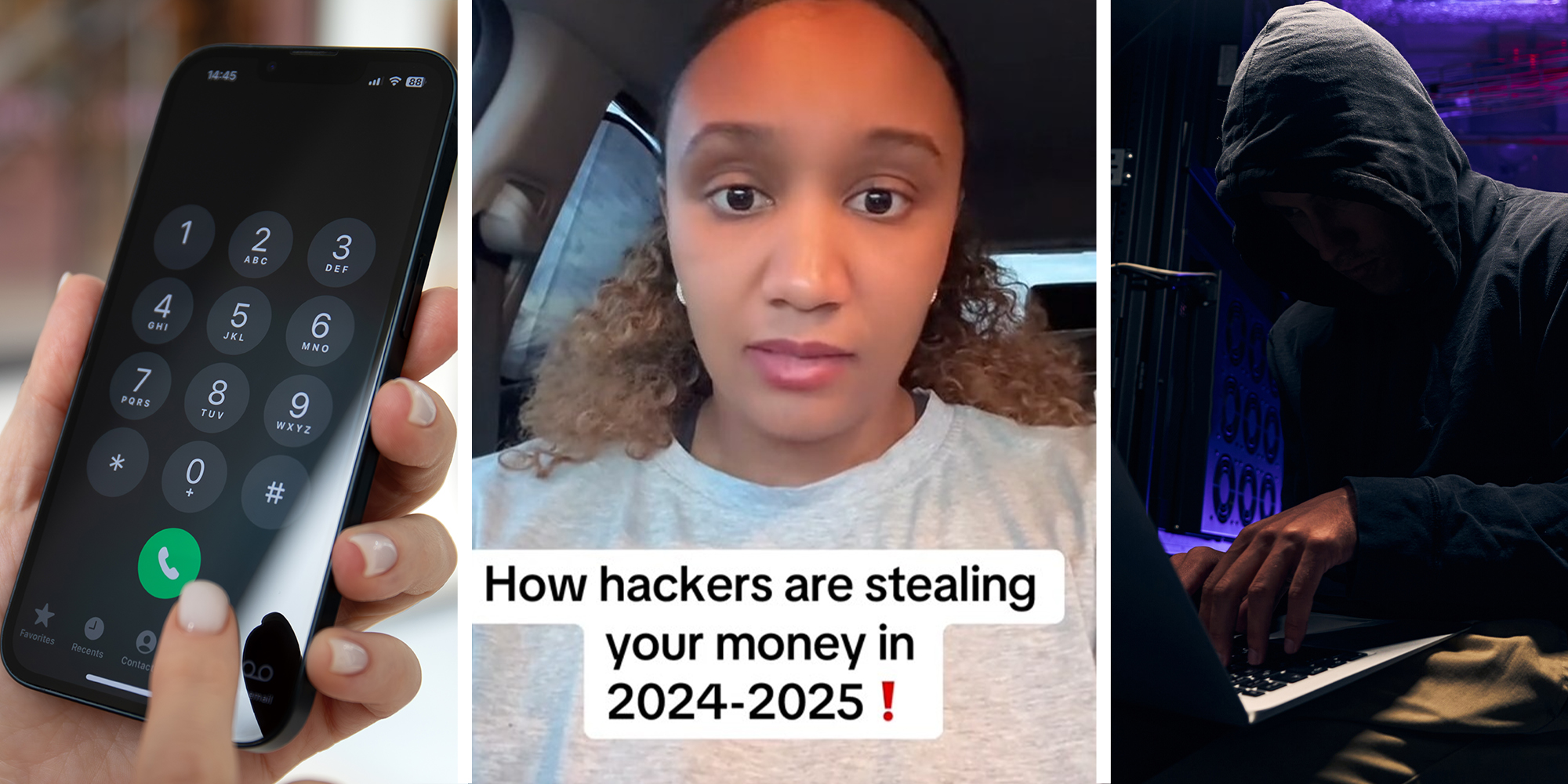Your phone number may be the key to your bank account as many scammers are using a new technique called SIM hacking.
In a TikTok with over 1.2 million views, creator lex.and.her.pen (@lex.and.her.pen) warns viewers of a phone number-based scam and urges everyone to remove their phone numbers from their accounts.
“You guys need to remove your phone numbers from literally everything,” she begins.
What is SIM hacking?
The content creator explains the scam called "SIM swapping" or "SIM hacking."
“So what these hackers are doing is calling your cell phone providers over and over again, [and] requesting new SIM cards. Now once they get these SIM cards? Crypto, gone. Bank account, drained. Emails, deleted. All that,” she says.
Is SIM protection enough?
Lex says that even SIM protections like PIN codes can’t fully protect victims.
“The people who fall victim to these scams have PIN codes. They have SIM protection. But it does not matter when it’s an inside job. Verizon, T-Mobile, AT&T, all guilty,” she declares.
She adds, “Workers are able to bypass these security prompts and give these people the SIM cards. My neighbor is out $4,000. That might not be a lot to some people, but when you work a regular 9 to 5 and you’re just barely middle class, that hurts.”
Should you get an Authenticator app?
Lex recommends authenticator apps to protect yourself.
“I have a Google authenticator app. You can also call your phone company and have them add account takeover protection. You can also have them remove the SIM changes remotely,” she recommends.
Finally, she tells users to stop giving their number out so freely.
“Just stop putting your number out there so much. I know it’s hard because everywhere wants your cell phone number to sign up for things. But just try to stay safe out there.” she concludes.
Viewers weigh in
In the comments, viewers shared their opinions about the risk of SIM hacking.
“I don’t understand why the cell phone companies are not responsible for our protection. We sure as hell pay enough for it,” one user said.
“Y’all, please turn on both Port Protection and SIM Protection. This will minimize the ability to do this. I see a lot of comments mentioning their phone not having a SIM, you do, it’s an eSIM!” another commenter offered.
“So, they won’t rob billionaires but average Americans struggling they target?” came a third comment.
@thealexissymone Watch my last video on AI ! #ai #chatgpt #hackers #hack #scam #2025
♬ original sound - thealexissymone
“Phone numbers have become Social Security Numbers,” a fourth person declared.
They’re partially right: SIM swapping is made possible by hackers getting ahold of your phone number and through it, your social media accounts, bank accounts, and other private information.
How does SIM hacking work?
According to Microsoft, the prevalence of two-factor authorization has forced hackers to obtain their victims’ phone numbers in order access their accounts.
In order to convince phone companies to transfer a victim’s phone number to their SIM cards, hackers often use a victim’s social media to glean information about them and answer security questions. These include common questions like a person's mother’s maiden name, high school, birthday, and city of birth.
Other methods hackers use to obtain victim information is phishing or buying leaked data on the dark web.
Once the phone number is transfer to a hacker’s SIM card, they have access to authentication codes sent to your phone number, and thus all of your “authenticated” accounts.
How can you protect yourself against SIM hacking?
To protect yourself, Microsoft recommends updating account security with a PIN number, using an authentication app that is connected to your device and not your phone number (like Lex’s use of a Google authenticator app), and becoming familiar with phishing techniques to recognize them proactively. You can also set your social media to private to make your information harder to access.
The Daily Dot has reached out to Lex via TikTok message for more information.
Internet culture is chaotic—but we’ll break it down for you in one daily email. Sign up for the Daily Dot’s web_crawlr newsletter here. You’ll get the best (and worst) of the internet straight into your inbox.






